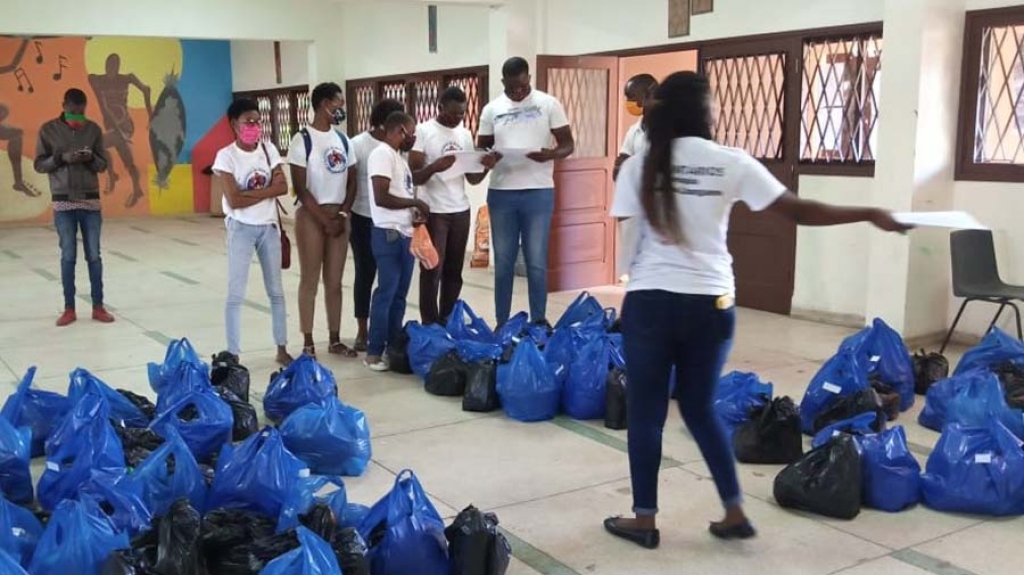MOZAMBIQUE: Volunteers from the Salesian São José community provide food rations to 46 elderly people in need

(MissionNewswire) Volunteers from the Salesian São José community, near Maputo, Mozambique, brought food rations to 46 elderly people in need. These rations included corn flour, rice, oil, sugar, tea and soap. In addition to these people, more than 100 others have been identified to receive help as soon as other resources become available.
Salesian missionaries have been living and working in Mozambique for more than 110 years, providing education and social development programs for poor youth. The country gained its independence in 1975, but a civil war erupted in 1977 and lasted until peace treaties were signed in Rome in 1992. The civil war left some 60,000 youth with few employment prospects, little training and war being the education they knew.
Salesian missionaries began offering vocational and technical training for these youth to help them gain employment and life skills that would prepare them for a life on their own and in the workforce. Today, there are five Salesian centers in the country teaching basic education along with vocational and technical training. These Salesian centers have also developed critical partnerships with local businesses that help ensure youth can make transitions from the classroom to the workforce. The partnerships also help tailor the skills training to ensure that Salesian programs are meeting the local workforce needs.
“Vocational and technical skills training along with these professional partnerships have become seeds of change for youth in Mozambique,” says Father Gus Baek, director of Salesian Missions, the U.S. development arm of the Salesians of Don Bosco. “The goal of Salesian centers is to ensure that youth have their basic needs met while focusing primarily on education to help them break the cycle of poverty and prepare them for the future. During this global pandemic and while school is out of session, Salesian missionaries are focusing on those most in need and impacted by coronavirus.”
In Maputo, the Don Bosco Higher Institute is the only professional teacher training program in the country. Partially funded by the Spanish Cooperation, it is also the only teacher training center in Mozambique recognized by the Ministry of Education for the training of teachers of professional schools. The teacher training program was developed in the 2006-2007 academic year and was made possible through a collaboration between the Salesians, the Spanish foreign ministry, the government of Mozambique and the Youth of the Third World organization.
Mozambique has made great strides in reducing poverty, according to the World Bank. But with nearly 50 percent of the population still living in poverty, progress has not been fast enough. Poverty is concentrated in rural areas, and even with growth within the country, the regions of Zambezia, Sofala, Manica and Gaza saw an increase in poverty in the 2000s.
More than 70 percent of those living in poverty reside in rural areas and rely on farming and fishing to make a living. The vast majority of the rural population lives on less than $1.25 a day and lacks basic services such as access to safe water, health facilities and schools.
###
Sources:
ANS Photo (usage permissions and guidelines must be requested from ANS)
ANS – Mozambique – Salesian volunteers help elderly
Salesian Missions – Mozambique
World Bank – Mozambique





